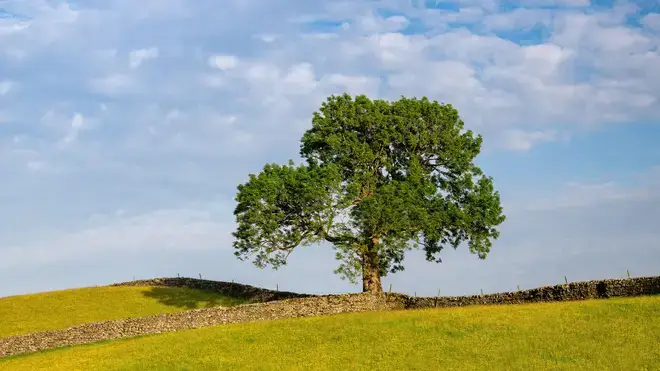Ash trees are evolving resistance to a fungus which has decimated the species in recent years, a new study shows.
Ash dieback was first seen in the UK in 2012 and there were fears it could lead to up to 85% of Britain’s native ash trees being wiped out.
The serious fungal disease resulted in widespread damage to woodlands, with the species
However, researchers from the Royal Botanic Gardens, Kew, and Queen Mary University of London have discovered a new generation of young ash trees in the wild which are showing greater resistance to the fungus compared to older trees.
The study suggests natural selection in the wild is taking place on thousands of locations within ash tree DNA, driving increased resistance to the disease.
The study compared the DNA of ash trees established before and after the fungus arrived in Britain.
It found shifts in variants associated with tree health in thousands of places across the overall genome of the trees, showing the younger generation of trees has greater resistance to the fungus.
Professor Richard Buggs, from Kew and Queen Mary and one of the study's authors, said: "We are so glad that these findings suggest that ash will not go the way of the elm in Britain.
"Elm trees have struggled to evolve to Dutch elm disease, but ash are showing a very different dynamic because they produce an abundance of seedlings upon which natural selection can act when they are still young."
The scientists involved, however, noted it was not yet known whether the rate of change would be enough to rescue the plants naturally, or whether there was enough genetic variation in ash trees to lead to a fully resistant tree.
Study author Dr Carey Metheringham, from Kew and Queen Mary, said while the news is promising, caution is advised.
"Thanks to natural selection, future generations of ash should have a better chance of withstanding infection," Dr Metheringham said.
"However, natural selection alone may not be enough to produce fully resistant trees.
"The existing genetic variation in the ash population may be too low, and as the trees become scarcer, the rate of selection could slow.
"Human intervention, such as selective breeding and the protection of young trees from deer grazing, may be required to accelerate evolutionary change."
The study focused on Marden Park, a nature reserve in Surrey, which has a heavy presence of ash, and was mainly funded by the Environment Department (Defra).

